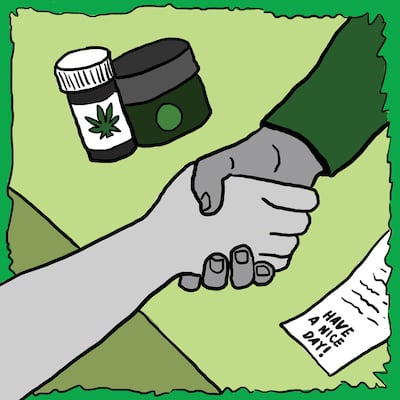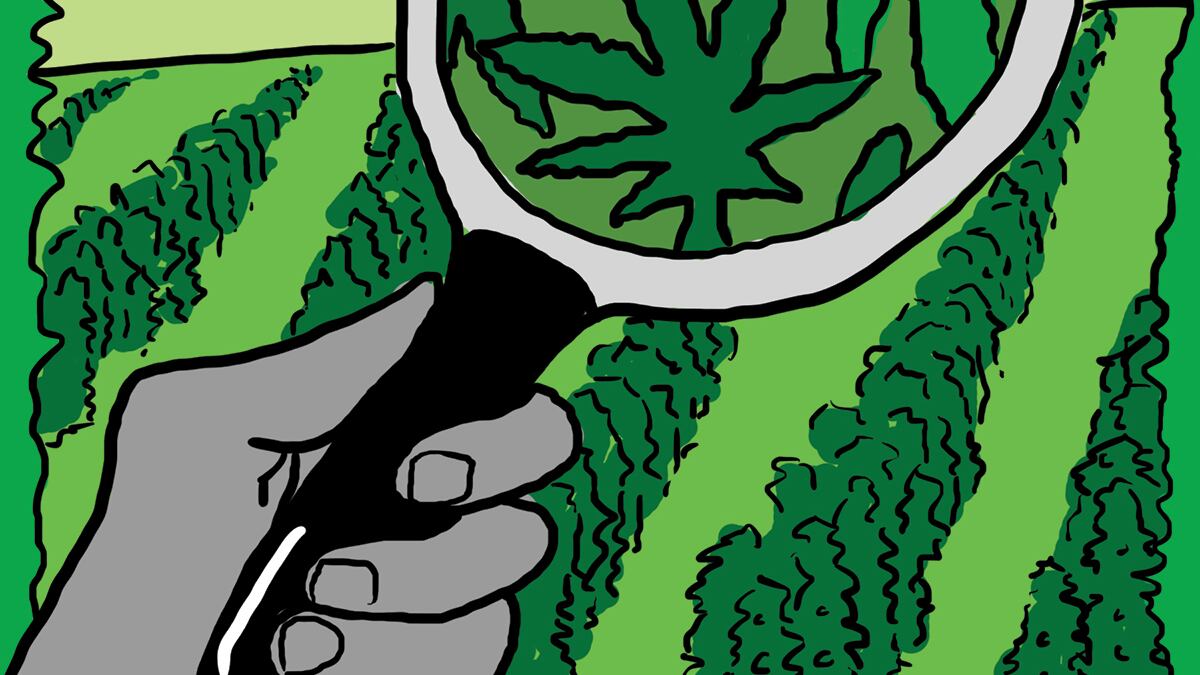Despite the lightning-fast normalization of a formerly low-key stoner culture, many still recall Oregon’s black market cannabis industry. Before legalization, cannabis was—and, on the federal level, still is—a Schedule I drug. And as such, it generated a less than ethical business model—which a few farms still rely on today, despite the fact it can be exploitative.
Oregon’s boutique cannabis culture sets us apart from states with higher barriers of entry into the industry—individual farmers who prioritize people over profit can thrive in this environment. But knowing the difference between performative integrity and legitimate, industry-leading principles is as critical as knowing kush from brick weed.
It’s worth noting that buying weed produced as ethically as possible is hardly an inconvenience, considering how tightly intertwined cannabis quality is with the well-being of its farmers, handlers, and the soil from which it sprouts.
With that in mind, WW asked a few cannabis industry pros to share their best insider advice on how buyers can use their grass budgets to preserve Oregon’s best-kept-secret: an equitable, sustainable and abundant cannabis industry with the best damn weed in the nation.
Clock the supply chain
Get familiar with the farms that supply your favorite edibles, concentrates, etc. There are several fully integrated brands—ones that own their farms, dispensaries, manufacturing processes and so forth—but many exist within a complex, interconnected network of farmers, post-processors, retailers and distributors. Knowing the channels your cannabis travels through before it hits your bowl can help ensure you’re supporting farms that cultivate with ecological conscientiousness, address inequalities wrought by the war on drugs, and appropriately compensate their workers, whether they work as year-round staff or seasonal farm support. That push for transparency can start with something as easy as cruising each brand’s social media.

Scroll the socials
“When I buy weed, I ask who grew it, then I look at the farm and their social media,” says Eden Williams, propagator for an organic cannabis farm in Sandy. “What are they talking about—the community, their employees, the world?” Williams’ savvy social media trick is remarkably handy when investigating the vibe of a recently discovered farm or brand. But more than investigating a brand’s social feed to avoid farms that post pictures of money stacks, luxury cars, and other lavish displays of success, Williams looks for something she sees as far more relevant to the quality of cannabis: “Farms talking about paying their employees a livable wage and offering benefits, these are the farms that should be flourishing, not investment companies.”

Use your inside voice
If you’ve ever asked your budtender to recommend a strain, you could also ask what they think of the conditions of the brands and farms they suggest. Those inquiries might feel a little out of pocket for a quick, transactional, over-the-counter exchange, but just as experienced kitchen staffers can distinguish between factory and organic produce, dispensary staffers have an intimate knowledge of what happens behind the curtain of cultivation. And they’re often happy to share that with you. For the emboldened, such a line of inquiry can, and should, extend to your budtender’s quality of life as well.
Lend your support
More often than not, Oregon’s cannabis industry champions farms founded from a therapeutic standpoint. That said, there are still plenty of cultivators treating this new industry as a sort of wild West, manipulating loopholes to exploit labor, expanding with disregard for the environment, and cutting vital corners to increase profit. But “it’s not just a matter of criticizing the industry,” says Amanda Tran, founder of the Cannabis Workers Support Network, “it’s a matter of making solutions and expectations clear.” One way to bolster that transparency is by supporting the organizations working toward those very goals, such as the Cannabis Workers Coalition (workers’ rights and support), the Oregon Handlers Fund (cannabis workers’ permits for disadvantaged, marginalized workers), and Cage Free Cannabis (social, economic and environmental restorative justice), to name a few.
Investigate farming methods
Cannabis is a monocrop, meaning it’s grown repeatedly on the same farmland without rotating other crops through. This can put a strain on a farm’s environment, stripping the soil of nutrients, overusing water resources, and producing tremendous waste. Monocropping is, historically, a corporate-dominated agricultural system that prioritizes yield over sustainability, and it can be argued that the cannabis industry should not emulate monocropping’s worst features. While the concept of polycropping, or companion planting, is literally ancient, it’s still in its infancy in regards to contemporary hemp and weed farming. But until polycropping overtakes monocropping as the agricultural standard, the onus is on us end users to learn how our favorite farms handle their waste, control their pests, and steward their land. If a farm is keeping that information under wraps, it’s worth the time to find out why.
Buy small
Part of the appeal of Oregon cannabis is how strongly it champions owner-operated small farms, and how that boutique aesthetic informs the industry at large. “I think [as the industry grows] that mindset is kind of eroding,” says Will Perry, co-owner/operator of Magic Hour Cannabis, “but we’re willing to continue sticking to our principles of organic small craft.” Perry’s is a common sentiment held by many smaller, craft brands across the state that similarly prioritize both quality and a healthy work environment. It’s an ethos that may be simplistic but, to some extent, defines the ethical buying of weed. “People say you are what you eat,’’ says Adriana Ruiz, Perry’s co-founder. “We say you are what you smoke.”
Six Oregonians Whose Hard Work Brings Cannabis to Your Door
What’s Ethical Weed and How Do You Find It?
How Does Photographer Erik Christiansen Capture Marijuana at its Most Microscopic?
Five Common Accreditations You’ll Find on Cannabis Packaging and What They Mean For You

